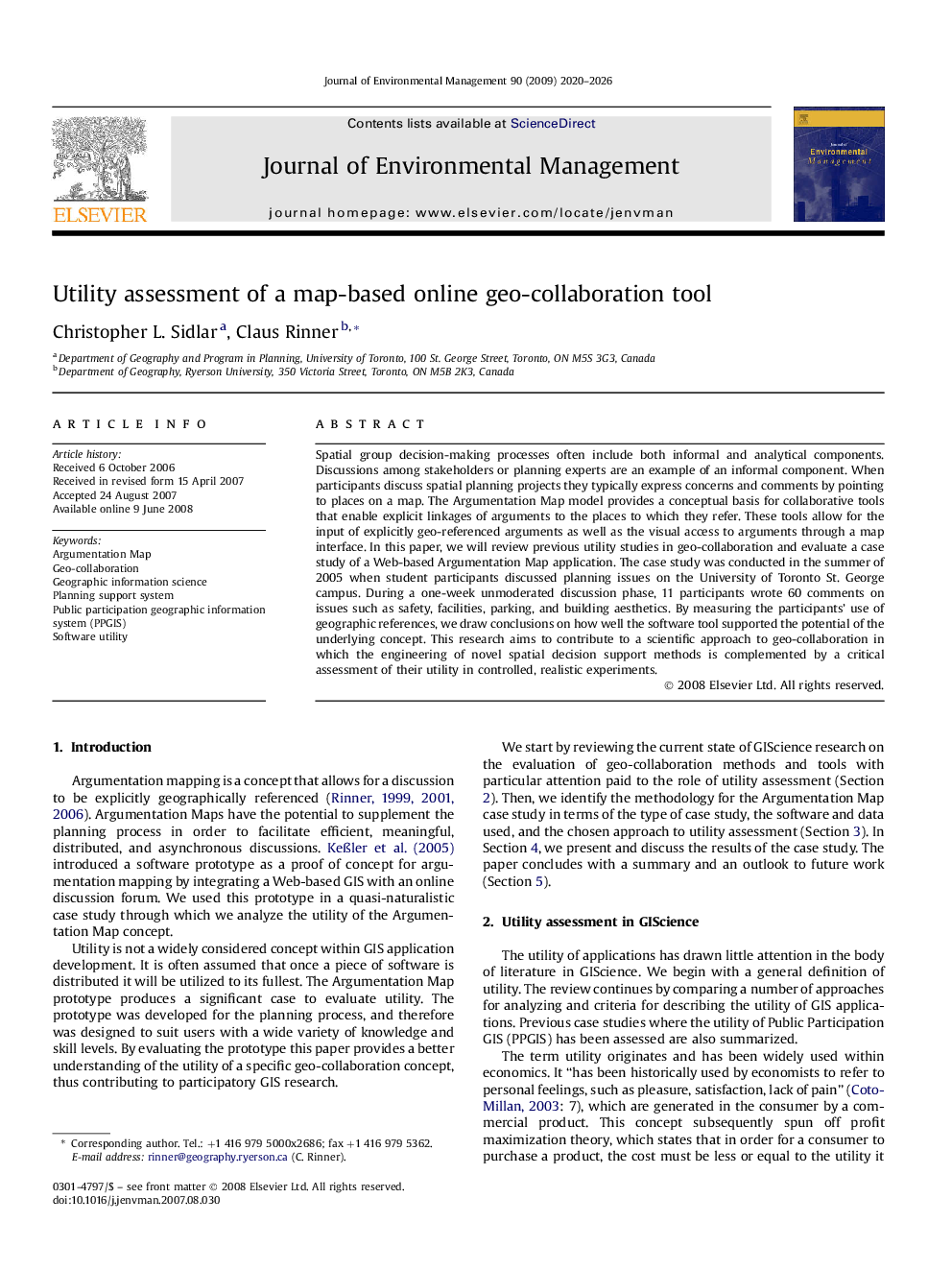| Article ID | Journal | Published Year | Pages | File Type |
|---|---|---|---|---|
| 1058244 | Journal of Environmental Management | 2009 | 7 Pages |
Spatial group decision-making processes often include both informal and analytical components. Discussions among stakeholders or planning experts are an example of an informal component. When participants discuss spatial planning projects they typically express concerns and comments by pointing to places on a map. The Argumentation Map model provides a conceptual basis for collaborative tools that enable explicit linkages of arguments to the places to which they refer. These tools allow for the input of explicitly geo-referenced arguments as well as the visual access to arguments through a map interface. In this paper, we will review previous utility studies in geo-collaboration and evaluate a case study of a Web-based Argumentation Map application. The case study was conducted in the summer of 2005 when student participants discussed planning issues on the University of Toronto St. George campus. During a one-week unmoderated discussion phase, 11 participants wrote 60 comments on issues such as safety, facilities, parking, and building aesthetics. By measuring the participants’ use of geographic references, we draw conclusions on how well the software tool supported the potential of the underlying concept. This research aims to contribute to a scientific approach to geo-collaboration in which the engineering of novel spatial decision support methods is complemented by a critical assessment of their utility in controlled, realistic experiments.
